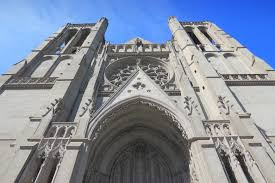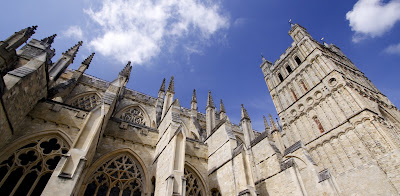Conservation of cultural heritage includes protection and restoration using "any techniques that prove effective in keeping that property in as close to its original condition as possible for as long as conceivable.”
Heritage buildings basically represent the past history and culture of a nation. They establish together the architectural heritage of an area. Heritage Building Conservation is very important because it offers a sense of identity and continuity in a fast changing world for future generations.
Heritage conservation doesn't mean freezing a building in time. Rather, it seeks to maintain and thereby improve the value of buildings by keeping their original built form and architectural elements, favouring their restoration rather than replacement and, when restoration is impossible, recreating scale, period and character.
Heritage Building Conservation provides concrete benefits to property owners, to businesses and to the community as a whole. Heritage preservation and designation improves property values, both of the restored building and surrounding properties.
Various heritage precincts are the central focuses for social gatherings and occasions. The significance of their preservation extends beyond their history, attributing more to the extraordinary character and feeling of having a place they inspire in our souls. In addition, these heritage architectural components additionally add to the style of our streetscapes.
In like manner, heritage conservation often prompts more noteworthy appreciation value for both the reestablished building and its surrounding properties contrasted with zones without historical landmarks. Heritage tourism is frequently profoundly established by historic structures. These captivating and tangible associations with our past spurs enthusiasm for travelers to absorb its particular feeling and this by itself attracts business.
Cultural heritage can give an automatic feeling of solidarity and having a place within a gathering and enables us to better understand past eras and the historical backdrop of where we originate from.
Conservation of Cultural Heritage ensures economic sustainability. The improvement of existing neighborhoods and foundation is basically less expensive than building new ones. Beside eliminating heavy infrastructure costs, restoration extends additionally help to hold cash within the group by making more neighborhood work and requiring less imported materials.
So, ensure Conservation of Cultural Heritage to control future changes to heritage buildings and places.
Heritage buildings basically represent the past history and culture of a nation. They establish together the architectural heritage of an area. Heritage Building Conservation is very important because it offers a sense of identity and continuity in a fast changing world for future generations.
Heritage conservation doesn't mean freezing a building in time. Rather, it seeks to maintain and thereby improve the value of buildings by keeping their original built form and architectural elements, favouring their restoration rather than replacement and, when restoration is impossible, recreating scale, period and character.
Heritage Building Conservation provides concrete benefits to property owners, to businesses and to the community as a whole. Heritage preservation and designation improves property values, both of the restored building and surrounding properties.
Various heritage precincts are the central focuses for social gatherings and occasions. The significance of their preservation extends beyond their history, attributing more to the extraordinary character and feeling of having a place they inspire in our souls. In addition, these heritage architectural components additionally add to the style of our streetscapes.
In like manner, heritage conservation often prompts more noteworthy appreciation value for both the reestablished building and its surrounding properties contrasted with zones without historical landmarks. Heritage tourism is frequently profoundly established by historic structures. These captivating and tangible associations with our past spurs enthusiasm for travelers to absorb its particular feeling and this by itself attracts business.
Cultural heritage can give an automatic feeling of solidarity and having a place within a gathering and enables us to better understand past eras and the historical backdrop of where we originate from.
Conservation of Cultural Heritage ensures economic sustainability. The improvement of existing neighborhoods and foundation is basically less expensive than building new ones. Beside eliminating heavy infrastructure costs, restoration extends additionally help to hold cash within the group by making more neighborhood work and requiring less imported materials.
So, ensure Conservation of Cultural Heritage to control future changes to heritage buildings and places.


No comments:
Post a Comment